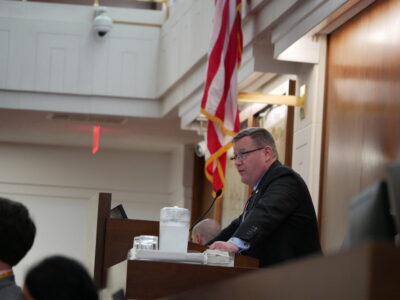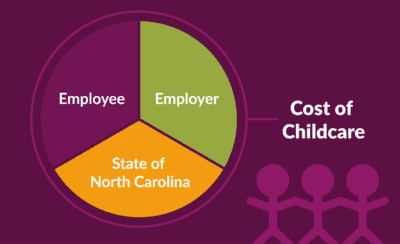
|
|
Editor’s Note: Katie Dukes contributed reporting to this article.
A couple hundred early childhood educators, child care service owners and directors, parents, and advocates marched and met with legislators at the General Assembly on Thursday to urge them to double the state’s early childhood funding.
“We want more,” advocates shouted as they circled the legislative building. As they made it halfway, the chant organically changed to, “We deserve more.”
“We hope today that legislators will hear us as they go write that budget,” said Jenna Nelson, executive director of the NC Early Education Coalition, one of several organizers of the event, Child Care for North Carolina: United for Change. The organizations want funding for better pay and benefits for teachers, more accessible and affordable child care for families, and more sustainable funding for providers.
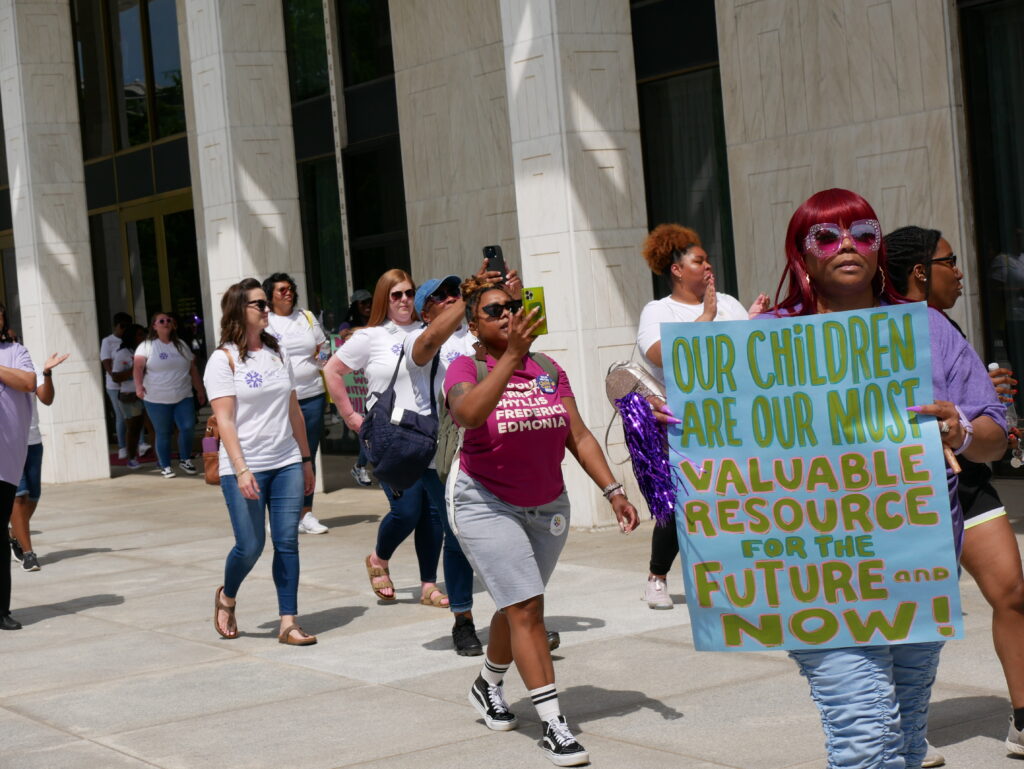
“All children birth through 5 are getting less than 1% of the state budget,” Nelson said. “They (legislators) have the money.”
That 1% Nelson mentioned includes about $700 million for Smart Start, a network of local early childhood partnerships that administer funds and services for young children and families, NC Pre-K, the state’s public preschool for at-risk 4-year-olds, and the child care subsidy program, which pays a portion of eligible working parents’ child care costs.
Sign up for Early Bird, our newsletter on all things early childhood.
Although legislators this session have introduced several bills to enhance funding for those programs, extend stabilization funding from the pandemic, and pilot new child care models, the House budget did not include many of those items. The coalition called the House proposal “disappointing.”
The Senate will release its budget next. After a spending plan is worked out and passed by both houses, it will go to Gov. Roy Cooper for his signature or veto. The Republican supermajority has the numbers to override a veto.
The priority of many advocates and early childhood caucus members this session is $300 million in compensation grants to help providers retain teachers as federal relief funds dry up this year.
“I feel confident that we will be celebrating by the end of this budget season the first steps to continued investment and growing the investment in the most important thing, which is growing our children,” Rep. Ashton Clemmons, D-Guilford, said to the crowd on Halifax Mall on Thursday. Clemmons is a co-chair of the early childhood caucus.
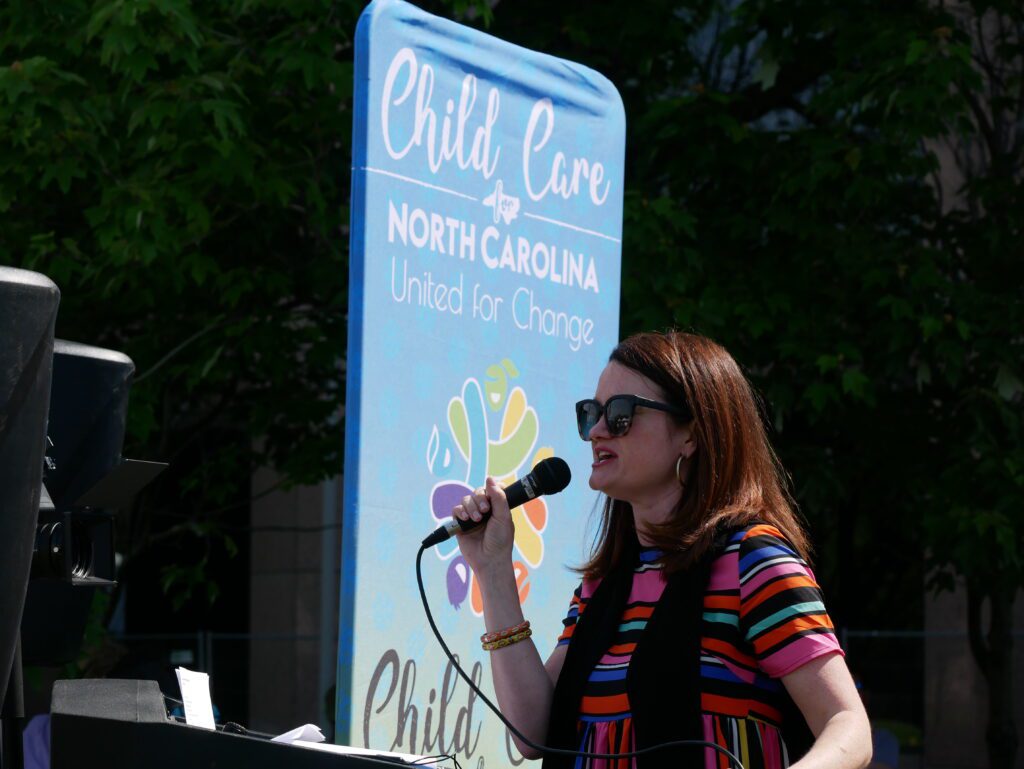
Advocates throughout the day highlighted the fragile nature of child care programs and the sacrifices teachers and administrators make to serve children and families. Low wages caused NC Pre-K teacher Bree Hewett to get a second job to pay her bills — while in school, she said.
“Us as teachers constantly put our lives on the line, but we still come to work for the love of our students,” said Hewett, who teaches at Little Believer’s Academy, a child care center in Garner. “Teachers are very under appreciated, especially when it comes to funding.”
Hewett thanked the center director, Cassandra Brooks, for doing all she can for teachers and children.
“But they can only do so much before they exhaust all of their resources,” she said.
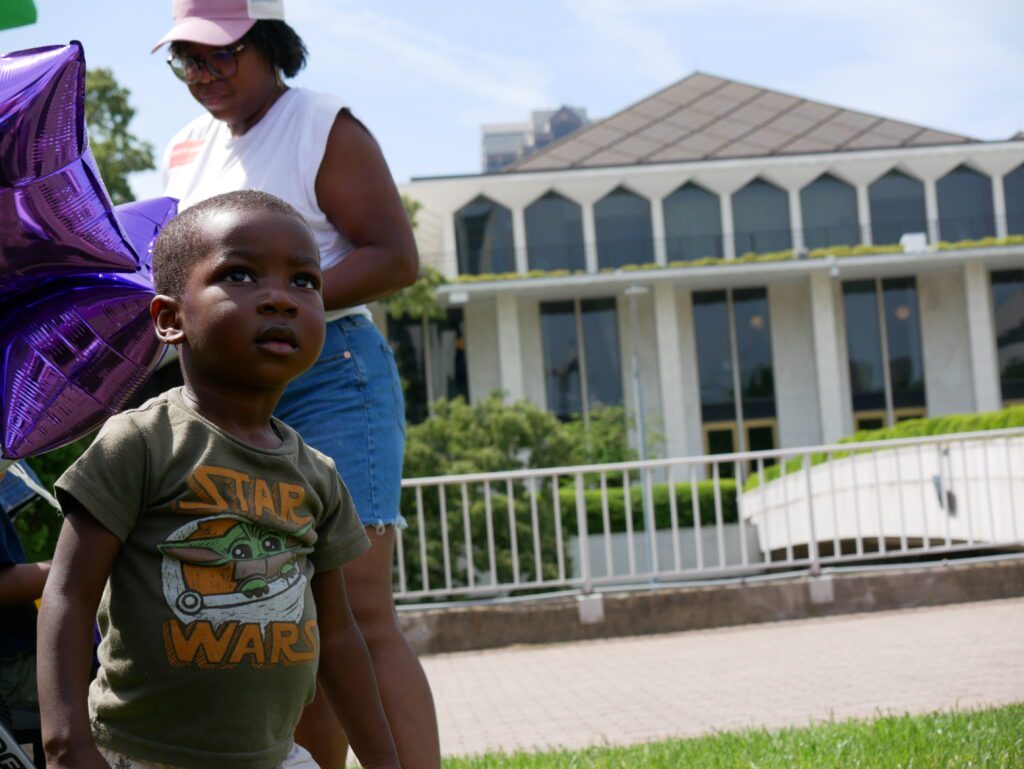
Child care workers in North Carolina received a median hourly wage of $11.23 in 2021, according to the Bureau of Labor Statistics. Directors, whose budgets primarily go to salaries, are often unable to raise tuition rates without pricing out parents. Meanwhile, parents of young children often cite child care as their biggest expense.
“We see that we can’t keep teachers in the field; there’s a lot of shortages, low wages, and at the same time, there’s still a lack of accessible child care for people who need it,” said Chanelle Croxton, who sits on the steering committee of the National Domestic Workers Alliance, another organizer of Thursday’s event. “And so it’s not working for anyone.”
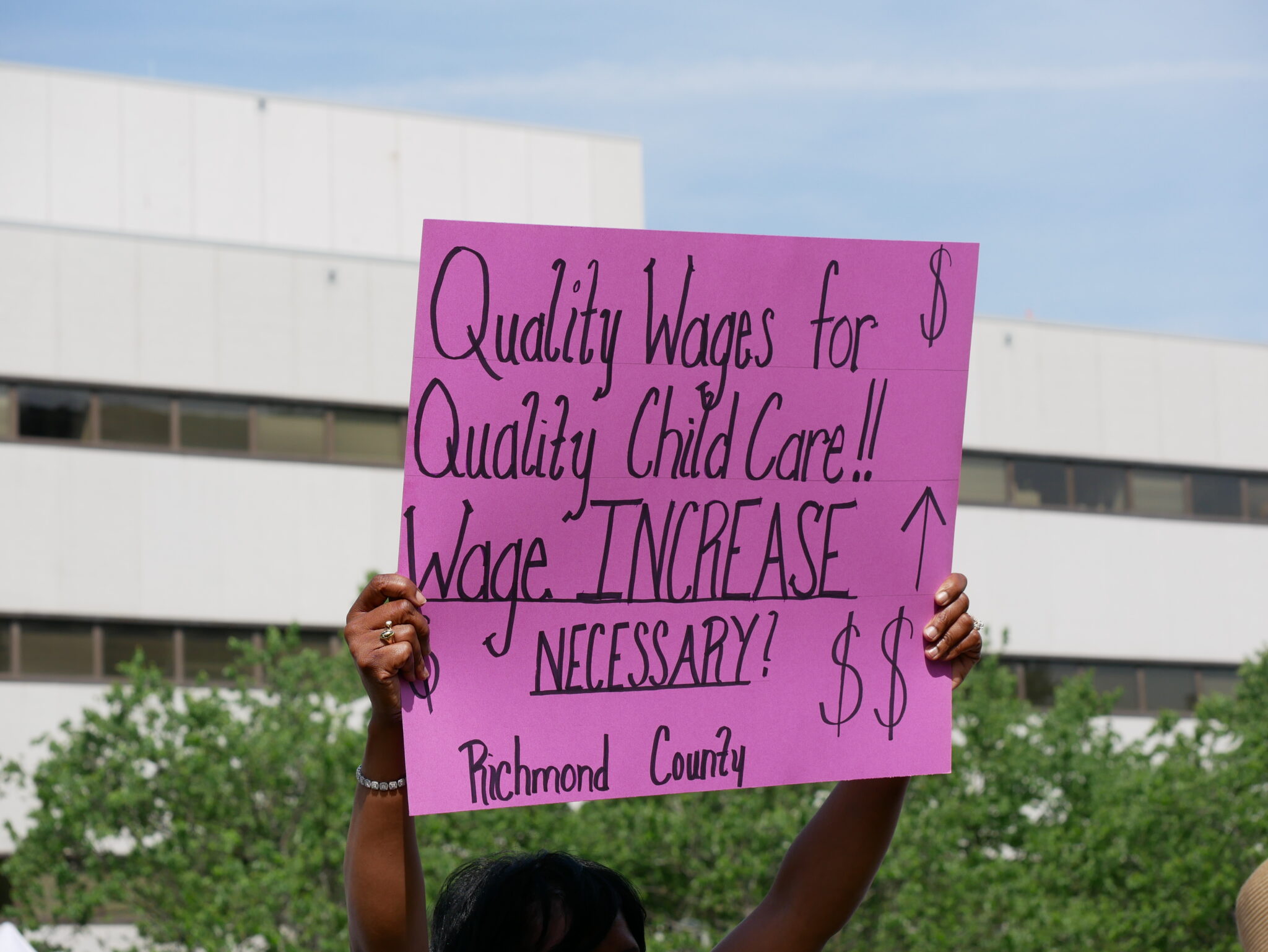
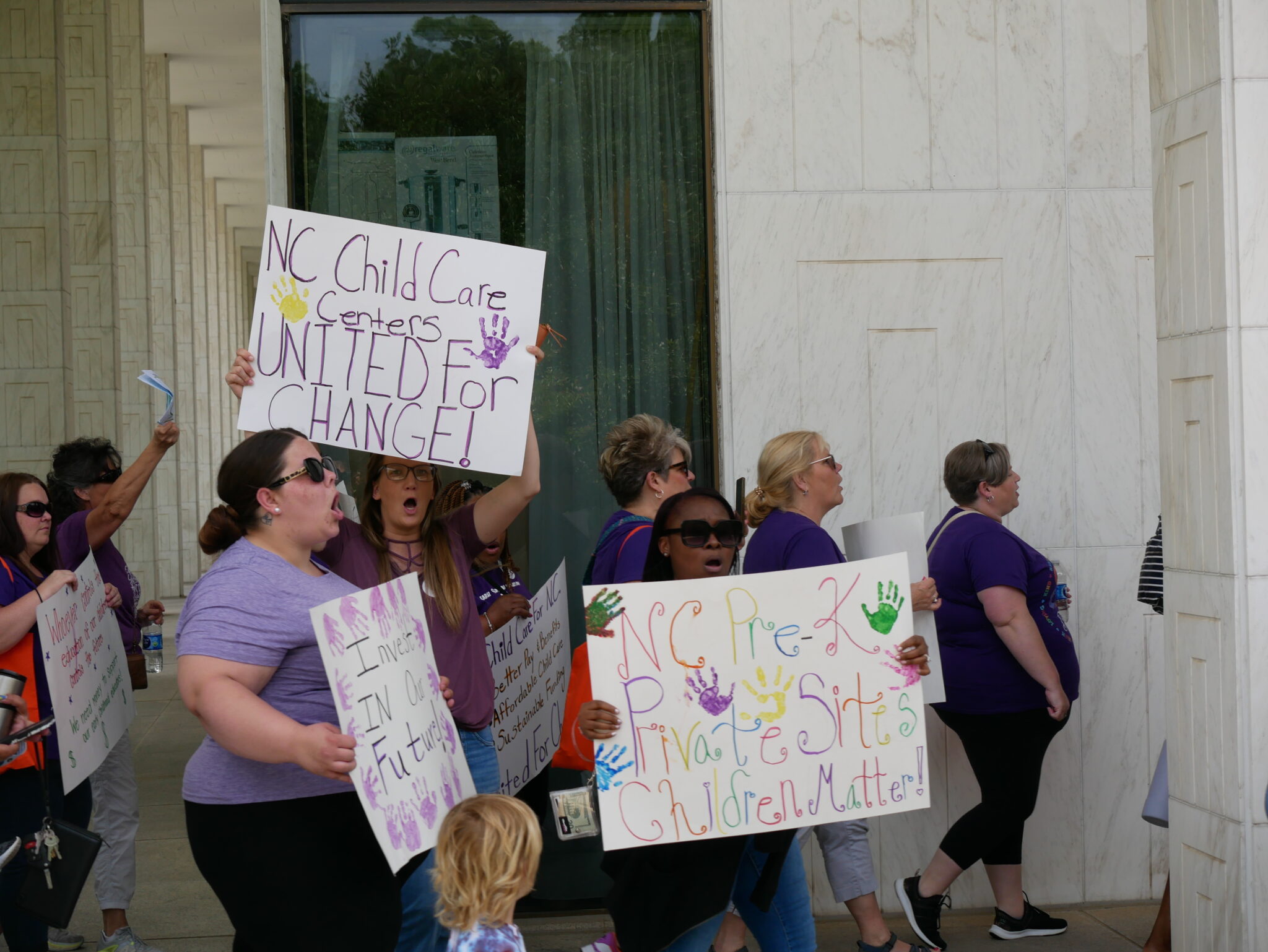
Lwiza Escobar Garcia, a mother of two children under 5 years old, said her family spent $30,000 on child care in the past year.
“I am drowning,” Escobar Garcia said. “If you believe that families are the backbone of our society, if you believe that children are really our future, then we need to invest in it.”
Brigid Flaherty, who spoke at the event, shared a similar struggle as a parent who pays $4,000 a month on child care.
“What makes me really sad is the emotional stress that this is taking on my husband and myself — something that should be a public good like child care,” Flaherty said. “I feel like I’m missing out on being happy with my kids.”
Speakers and advocates spoke about the importance of child care when it comes to the state’s workforce participation and economic wellbeing. Sen. Jim Burgin, R-Harnett,mentioned the state’s status as one of the most business-friendly states in the nation.
“If there’s not workers, they won’t come,” Burgin said. “I want everyone to have a safe, affordable place for their children to go.”
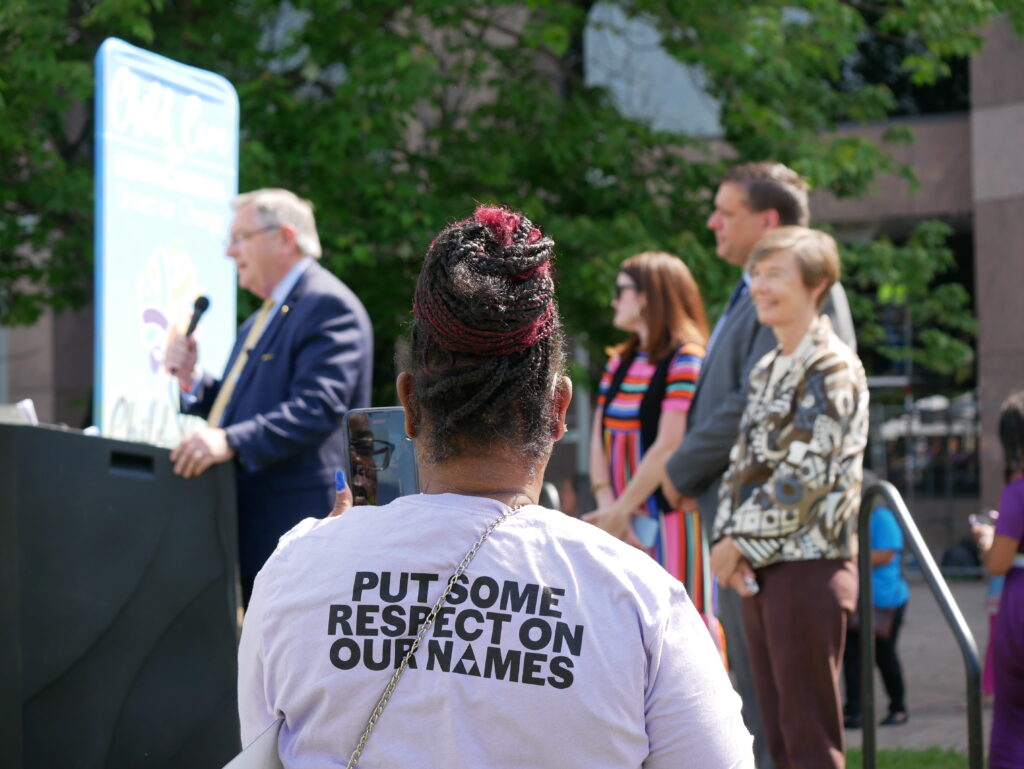
Teachers and administrators from Partners in Learning, a center that serves about 200 children in Salisbury, said they see the same problem at the local level. Norma Honeycutt, executive director of the program, said the stabilization funds have helped them stay afloat for the time being.
“I think it’s over 10,000 jobs come into our county, and right now, there is no child care. So we’re struggling now — much less if we lose those funds,” Honeycutt said.
She acknowledged that another one-time investment won’t solve child care’s financial problems long-term. Yet funds are needed quickly, she said.
“Child care is on the verge of collapsing,” Honeycutt said. “If the system collapses, then nobody will be able to work. Just extend it until June of 2025 and by then, hopefully all of the child care advocates can put their heads together and come up with a solution. But we’re about to fall off a cliff.”
When asked what policymakers should take from the advocacy day, Honeycutt’s colleague Heather Fidler, an educational director at the program, said “diversity.”
“This is not a single community problem,” Fidler said. “This is not a single city problem. This is statewide, every community, every center, everyone is struggling. And if they don’t see that, it is a collapse that is fundamental to everyone. So they have got to see it.”
Recommended reading

